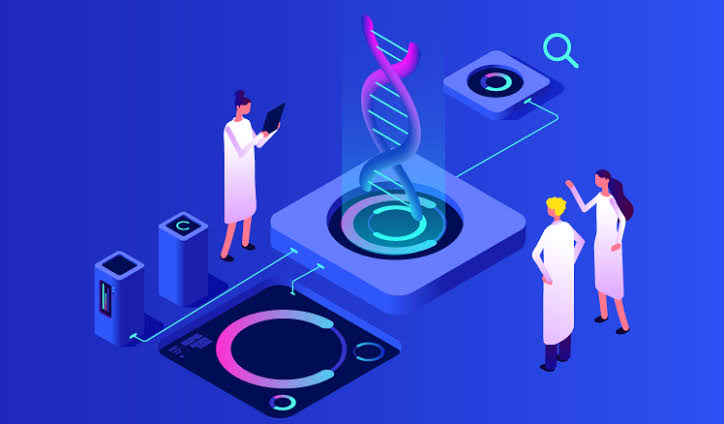How AI can help detect cancer and why India’s biggest cancer treatment hospital is utilising it (Indian Express)

- 08 Jan 2024
Why is it in the News
Given the escalating cases of cancer, the shortage of specialists poses a significant challenge in curbing fatalities. To address this gap, Mumbai’s Tata Memorial Hospital (TMH), the biggest cancer hospital in India, is turning to artificial intelligence (AI).
Context:
- With the rising cancer cases, a notable challenge is the shortage of specialists, impacting efforts to reduce fatalities.
- To tackle this issue, Tata Memorial Hospital (TMH) in Mumbai, India, the country's largest cancer hospital, is embracing artificial intelligence.
- The hospital is leveraging deep learning to establish a Bio-Imaging Bank for cancer, employing AI to develop a tailored algorithm specific to cancer diagnosis.
What is the Role of AI in Cancer Detection and Treatment?
- Early Detection through Identification of Tissue Changes and Potential Malignancies: AI analyzes radiological and pathological images, learning from extensive datasets to recognize unique features associated with various cancers.
- This technology facilitates early detection by identifying tissue changes and potential malignancies.
- Predictive Models for Tumor Survival and Treatment Guidance: Comprehensive imaging generates longitudinal patient data, aiding in understanding behavior, treatment response, disease recurrence, and overall survival.
- AI and machine learning protocols utilize this data to develop predictive models for tumor survival and guide treatment aggressiveness.
- Avoiding Unnecessary Chemotherapy: The creation of a tumor image bank allows for the development of algorithms for different tumors, assessing treatment responses directly from images and avoiding unnecessary chemotherapy for predicted non-responders.
- Maintaining Diagnostic Quality while Decreasing Radiation Exposure: Tata Memorial Hospital has added data from 60,000 patients to the biobank over the past year.
- Using this data, AI successfully reduces radiation by enhancing images with AI algorithms, ensuring a significant decrease in radiation exposure to children without compromising diagnostic quality.
- Potential to Reduce Cancer Fatalities in the Future:
- AI is poised to play a transformative role in cancer treatment, particularly in mitigating fatalities in rural India.
- Its potential lies in tailoring treatment approaches based on diverse patient profiles, optimizing therapy outcomes.
- AI swiftly detects cancer, eliminating the need for extensive tests and enabling even general practitioners to diagnose complex cancers.
- This technology is set to significantly enhance precision in cancer solutions.
What is Bio-Imaging Bank?
- The overarching objective is to establish a robust repository incorporating radiology and pathology images intricately linked with clinical information, outcome data, treatment specifics, and additional metadata.
- This strategic design aims at facilitating the training, validation, and rigorous testing of AI algorithms.
- Functioning: In conjunction with creating the database, the project involves training and testing multiple AI algorithms using the accumulated data.
- It is tailored to address medically relevant tasks, including screening for lymph node metastases, nucleus segmentation and classification, biomarker prediction, and therapy response prediction.
- Institutions Involved: The multi-institutional project receives funding from the Department of Biotechnology and collaborates with IIT-Bombay, RGCIRC-New Delhi, AIIMS-New Delhi, and PGIMER-Chandigarh.
